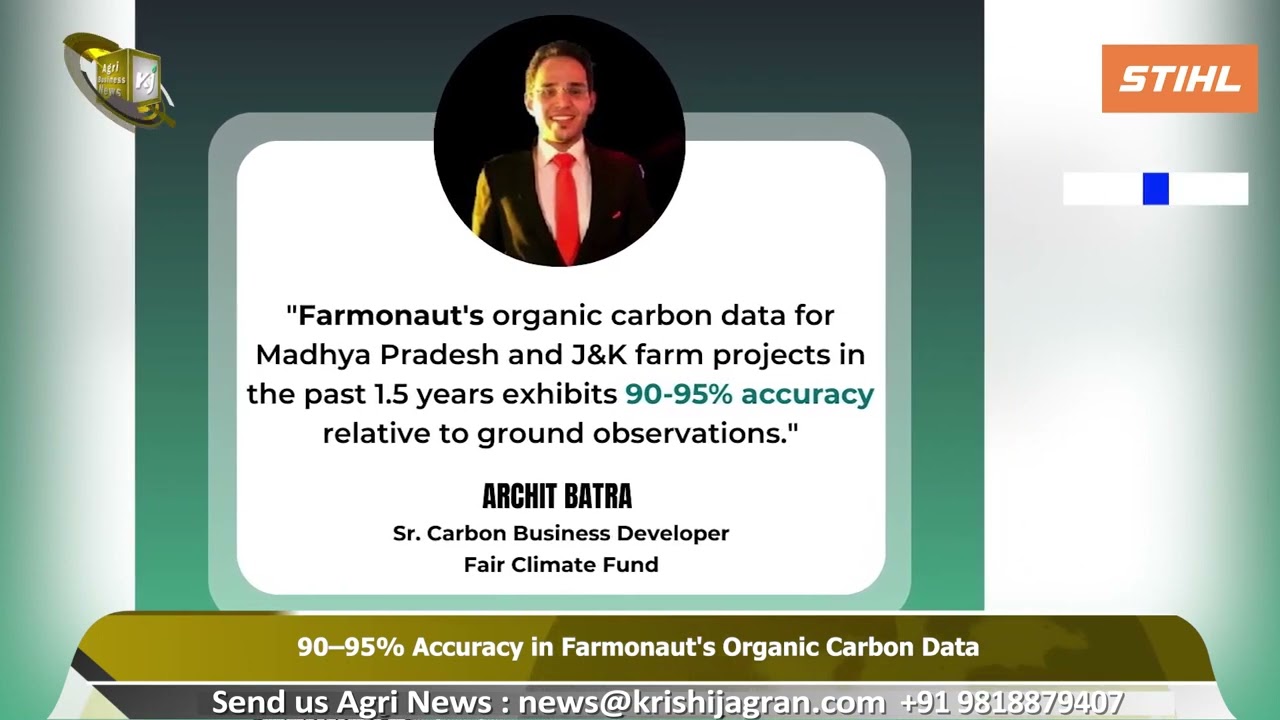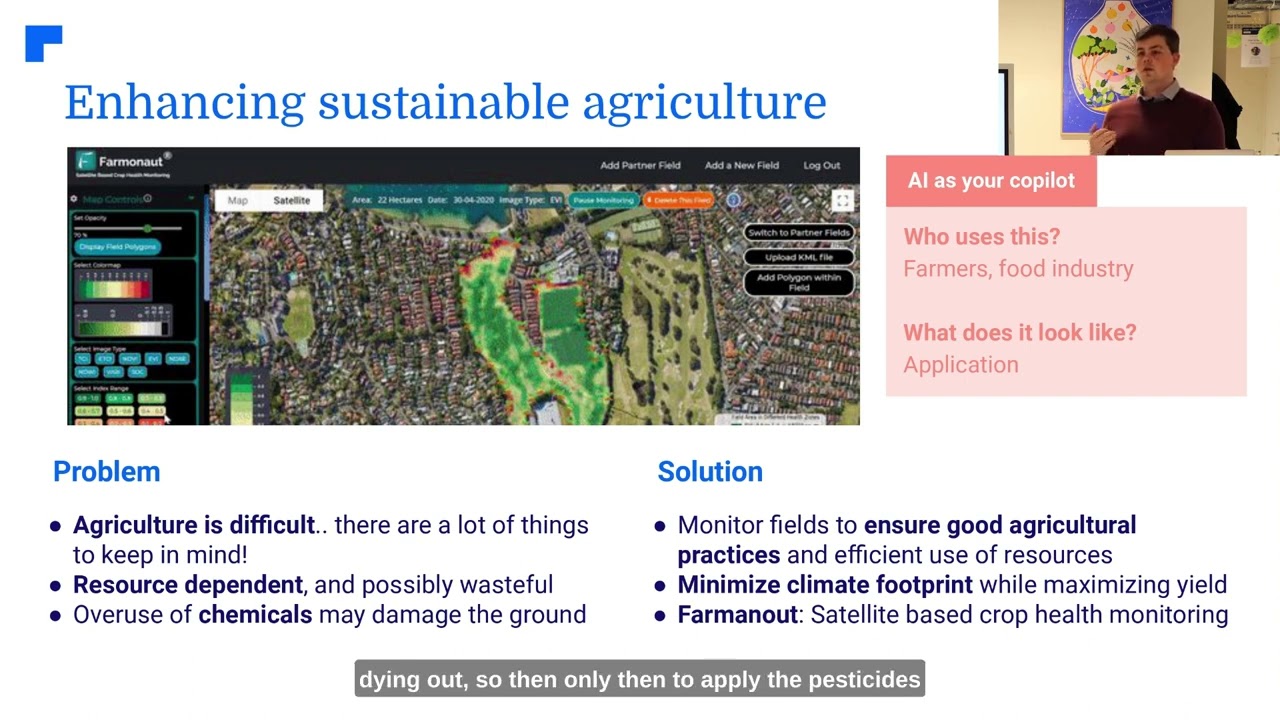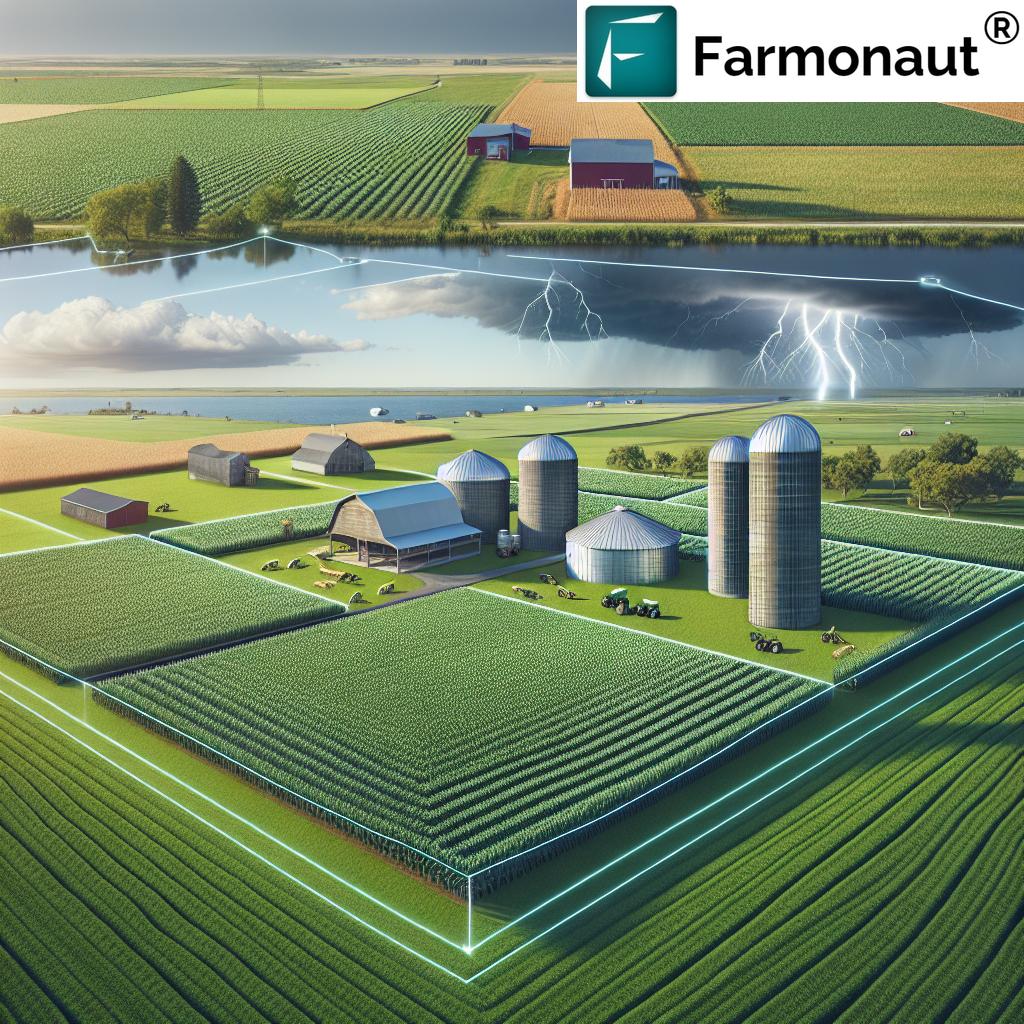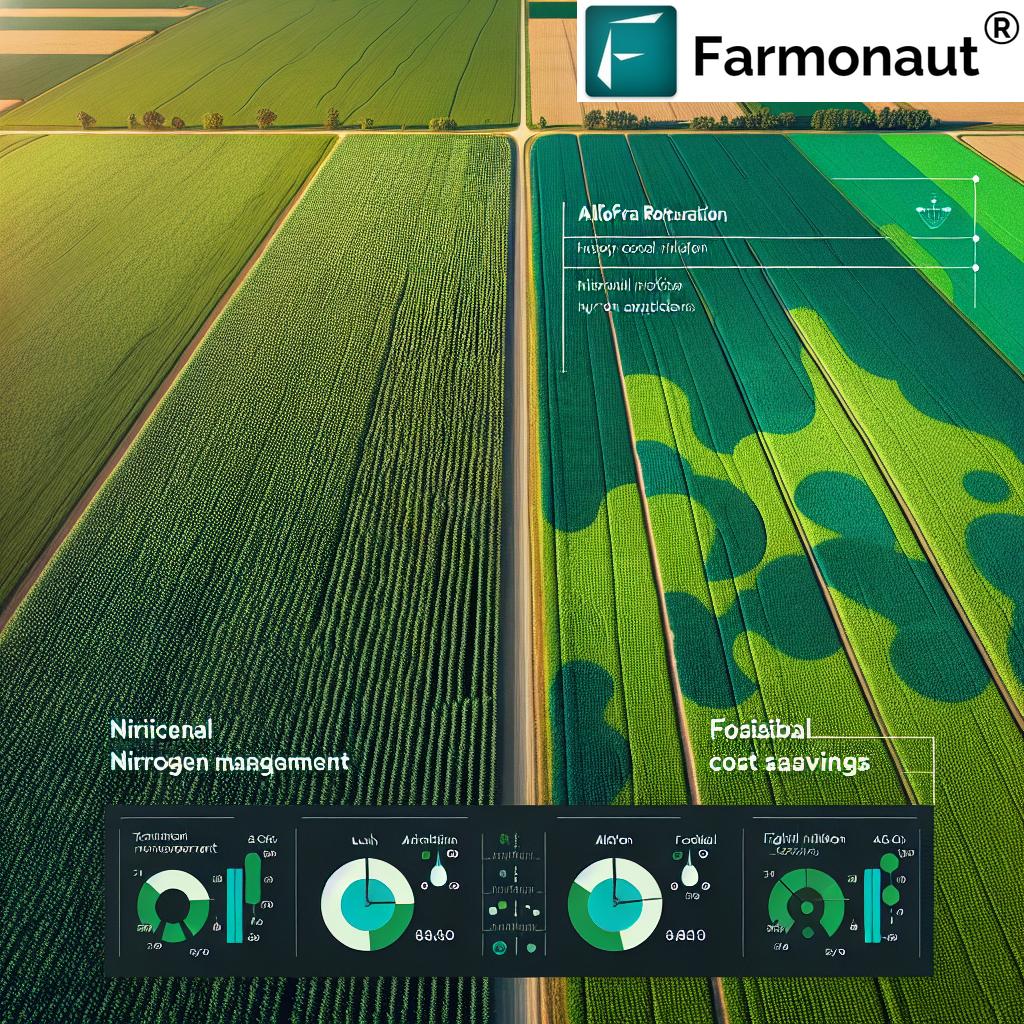Oklahoma Farmland at Risk: The Environmental Impact and Health Concerns of Biosolids in Agriculture
“EPA studies show PFOA and PFOS in biosolids can persist in soil for decades, earning the name ‘forever chemicals’.”
In recent years, we’ve witnessed a growing concern over the use of biosolids in agriculture, particularly in Oklahoma. As advocates for sustainable farming practices and environmental stewardship, we at Farmonaut believe it’s crucial to address this issue head-on. The application of sewage sludge as fertilizer on farmland has sparked intense debate, raising questions about its impact on soil health, water quality, and public safety.
Understanding Biosolids and Their Use in Agriculture
Biosolids, often referred to as sewage sludge, are organic matter recycled from wastewater treatment plants. For decades, they’ve been used as fertilizer on farmland, touted as a cost-effective and nutrient-rich alternative to synthetic fertilizers. However, recent findings from the Environmental Protection Agency (EPA) have cast a shadow over this practice, highlighting potential risks that we can no longer ignore.

The EPA’s Alarming Findings
The EPA’s recent draft assessment has brought to light significant human health risks associated with “forever chemicals,” specifically PFOA and PFOS, found in biosolids. These chemicals, known for their persistence in the environment and tendency to accumulate in the human body, pose serious concerns for Oklahoma’s agricultural landscape.
- Land application
- Landfill disposal
- Incineration
All three methods of handling and disposing of sewage sludge present potential hazards, with land application being particularly relevant to Oklahoma’s farming communities.
The Oklahoma Perspective
In Oklahoma, the controversy surrounding biosolids has reached a critical point. State Representative Jim Shaw (R-Chandler) and activist Saundra Traywick have been vocal about the potential health risks associated with using sewage sludge on farmland. Their concerns are not unfounded, as emerging research continues to support the need for caution.
“Oklahoma’s biosolid controversy affects millions of acres of farmland, potentially impacting the state’s $7.1 billion agricultural industry.”
The Environmental Impact of Biosolids
The environmental impact of biosolids extends beyond the immediate concerns of soil contamination. We must consider the broader implications for our ecosystems:
- Water Quality: Runoff from fields treated with biosolids can lead to contamination of water sources, affecting both wildlife and human populations.
- Soil Health: While biosolids can provide nutrients, they may also introduce harmful substances that degrade soil quality over time.
- Biodiversity: The introduction of contaminants through biosolids can disrupt local ecosystems, potentially harming beneficial microorganisms and wildlife.
At Farmonaut, we understand the importance of maintaining healthy soils and ecosystems. Our satellite-based crop monitoring technology can help farmers transition to safer, more sustainable fertilization methods amidst these challenges. By providing real-time data on crop health and soil conditions, we empower farmers to make informed decisions about their land management practices.
Health Concerns Associated with Biosolids
The health risks associated with biosolids in agriculture are multifaceted and deeply concerning. As we delve into this issue, it’s important to understand the various ways in which these risks manifest:
- PFAS Contamination: Per- and polyfluoroalkyl substances (PFAS), including PFOA and PFOS, are synthetic chemicals found in many consumer products and industrial processes. Their presence in biosolids is particularly alarming due to their persistence and potential health effects.
- Heavy Metal Accumulation: Biosolids can contain heavy metals such as lead, cadmium, and mercury, which can accumulate in soil and potentially enter the food chain.
- Pharmaceutical Residues: Traces of pharmaceuticals and personal care products that are not fully removed during wastewater treatment can end up in biosolids, raising concerns about their long-term effects on human health and the environment.
- Pathogen Exposure: While treatment processes aim to reduce pathogen levels in biosolids, there’s still a risk of exposure to harmful bacteria, viruses, and parasites.
These health concerns underscore the need for more rigorous testing and regulation of biosolids used in agriculture. At Farmonaut, we believe in promoting farming practices that prioritize both productivity and safety. Our API and mobile applications provide farmers with tools to monitor crop health without relying on potentially harmful fertilizers.
The Regulatory Landscape
As the debate over biosolids intensifies, the regulatory landscape in Oklahoma is evolving. State Representative Jim Shaw’s commitment to introducing legislation to ban the application of biosolids on farmland marks a significant shift in policy approach. This move reflects growing awareness and concern among lawmakers and the public about the potential risks associated with biosolids.
Key points in the regulatory discussion include:
- Proposed bans on biosolid application in agriculture
- Calls for comprehensive studies on the environmental impact of biosolids
- Potential stricter regulations on sewage sludge disposal methods
- Enhanced monitoring and reporting requirements for biosolid use
As these regulatory changes unfold, farmers may need to adapt their practices quickly. Farmonaut’s technology can assist in this transition by providing data-driven insights for sustainable farming methods. Our API Developer Docs offer resources for integrating precision agriculture tools into existing farm management systems.
Alternatives to Biosolids in Agriculture
As concerns about biosolids grow, it’s essential to explore alternative fertilization methods that can maintain soil fertility without compromising environmental and public health. Here are some sustainable options:
- Organic Compost: Made from plant materials and animal manure, organic compost provides nutrients without the risk of chemical contamination.
- Cover Crops: Planting cover crops can naturally enrich soil, prevent erosion, and improve overall soil health.
- Crop Rotation: Rotating crops can help maintain soil fertility and reduce the need for external inputs.
- Precision Agriculture: Using technology like Farmonaut’s satellite-based monitoring can help optimize fertilizer use and reduce waste.
- Biofertilizers: Microbial inoculants can enhance soil fertility naturally.
By adopting these alternatives, farmers can reduce their reliance on potentially harmful biosolids while maintaining productivity. Farmonaut’s technology supports these sustainable practices by providing detailed insights into crop health and soil conditions.
The Role of Technology in Sustainable Agriculture
In the face of challenges posed by biosolids, technology plays a crucial role in promoting sustainable agriculture. Farmonaut’s satellite-based crop monitoring offers several advantages:
- Real-time crop health assessment
- Precision fertilizer application recommendations
- Early detection of soil and water quality issues
- Data-driven decision-making for farm management
By leveraging these technologies, farmers can optimize their resource use, reduce environmental impact, and ensure the safety of their produce.
Community Impact and Public Awareness
The biosolids controversy in Oklahoma extends beyond the fields and into communities. Residents near areas where biosolids are applied have reported significant quality of life issues, including:
- Unpleasant odors affecting daily activities
- Concerns about long-term health effects
- Worries about property values and environmental degradation
Raising public awareness about these issues is crucial. As a company committed to sustainable agriculture, Farmonaut supports efforts to educate communities about the potential risks of biosolids and the importance of adopting safer farming practices.
Economic Considerations
The shift away from biosolids raises important economic questions for Oklahoma’s agricultural sector. While biosolids have been a cost-effective fertilizer option, the potential long-term costs of environmental and health impacts may outweigh the short-term savings. Farmers transitioning to alternative methods may face initial challenges, but the long-term benefits of sustainable practices can include:
- Higher quality produce commanding premium prices
- Reduced risk of contamination and associated liabilities
- Potential access to new markets focused on sustainable products
- Improved soil health leading to better long-term productivity
Farmonaut’s technology can help farmers navigate this transition by optimizing resource use and improving overall farm efficiency.
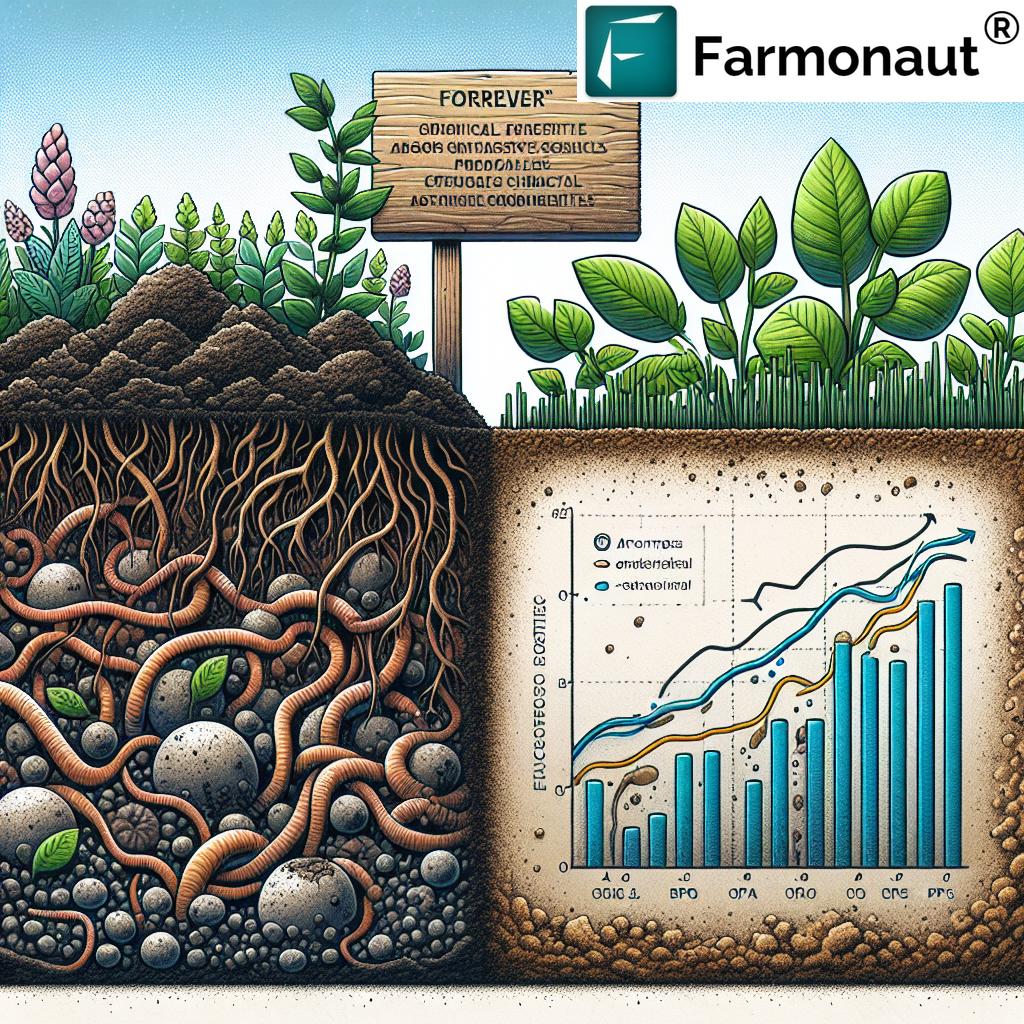
Comparative Analysis: Biosolids vs. Alternative Fertilizers
| Fertilizer Type | Nutrient Content (N-P-K) | Environmental Impact | PFAS Risk | Cost ($/acre) | Crop Yield Impact | Water Quality Impact | Soil Health Impact | Regulatory Status in OK |
|---|---|---|---|---|---|---|---|---|
| Biosolids | 5-3-0 | High | High | $20-$30 | +10-15% | High | Negative | Allowed (under review) |
| Organic Compost | 2-1-1 | Low | Low | $40-$60 | +5-10% | Low | Positive | Allowed |
| Synthetic Fertilizers | 10-10-10 | Medium | Low | $50-$70 | +15-20% | Medium | Neutral | Allowed |
This table illustrates the trade-offs between different fertilizer options. While biosolids may offer cost advantages and higher nutrient content, the environmental and health risks are significant. Alternatives like organic compost, though potentially more expensive, offer safer and more sustainable options for Oklahoma’s farmers.
The Path Forward: Sustainable Agriculture in Oklahoma
As we confront the challenges posed by biosolids in agriculture, it’s clear that a shift towards more sustainable practices is necessary. This transition will require collaboration between farmers, policymakers, researchers, and technology providers. Here are key steps for moving forward:
- Research and Development: Invest in studies to fully understand the long-term impacts of biosolids and develop safer alternatives.
- Policy Reform: Implement stricter regulations on biosolid use and provide incentives for adopting sustainable farming practices.
- Education and Outreach: Increase awareness among farmers and the public about the risks of biosolids and the benefits of sustainable agriculture.
- Technology Adoption: Embrace precision agriculture tools, like those offered by Farmonaut, to optimize resource use and reduce environmental impact.
- Support for Transition: Provide financial and technical assistance to farmers transitioning away from biosolids to sustainable alternatives.
By taking these steps, we can work towards a future where Oklahoma’s agriculture is not only productive but also safe and environmentally sustainable.
Farmonaut’s Commitment to Sustainable Agriculture
At Farmonaut, we’re dedicated to supporting farmers in their journey towards more sustainable practices. Our satellite-based crop monitoring technology provides valuable insights that can help reduce reliance on potentially harmful fertilizers like biosolids. By offering real-time data on crop health, soil moisture, and other critical factors, we empower farmers to make informed decisions that benefit both their operations and the environment.
Earn With Farmonaut: Join our affiliate program and earn 20% recurring commission by helping farmers save 10% with your promo code. Onboard 10 Elite farmers monthly to earn a minimum of $148,000 annually—start now and grow your income!
Conclusion
The controversy surrounding biosolids in Oklahoma’s agriculture highlights the complex challenges we face in balancing agricultural productivity with environmental and public health concerns. As we move forward, it’s crucial to prioritize sustainable practices that protect our soil, water, and communities. By leveraging technology, implementing sound policies, and fostering collaboration, we can create a more resilient and sustainable agricultural sector in Oklahoma.
At Farmonaut, we remain committed to supporting this transition through our innovative crop monitoring solutions. Together, we can work towards a future where Oklahoma’s farmlands are not just productive, but also safe and sustainable for generations to come.
FAQ Section
Q: What are biosolids?
A: Biosolids are organic matter recycled from sewage treatment plants, often used as fertilizer in agriculture.
Q: Why are biosolids controversial in Oklahoma?
A: Concerns have been raised about potential health risks and environmental impacts associated with the use of biosolids on farmland, particularly due to the presence of “forever chemicals” like PFOA and PFOS.
Q: What are the alternatives to using biosolids in agriculture?
A: Alternatives include organic compost, cover crops, crop rotation, precision agriculture techniques, and biofertilizers.
Q: How can Farmonaut help farmers transition away from biosolids?
A: Farmonaut’s satellite-based crop monitoring technology provides real-time data on crop health and soil conditions, helping farmers make informed decisions about fertilizer use and adopt more sustainable practices.
Q: What are the potential health risks associated with biosolids?
A: Health risks include exposure to PFAS chemicals, heavy metals, pharmaceutical residues, and pathogens that may be present in biosolids.






